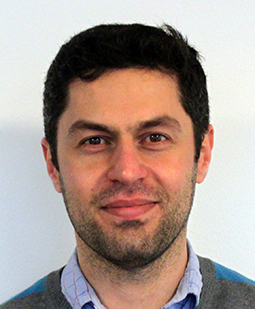Monitoring and modeling hydrological impacts on roads and resulting pollution on groundwater
Hedi Rasul's research aims to increase awareness of hydrological conditions of water and solute transport in road layers down to the groundwater in order to minimise environmental impacts during construction and operation.

What is the topic of your Doctoral Thesis?
The topic of my thesis is monitoring and modeling of hydrological impacts on roads and resulting pollution on groundwater.
Why did you choose this topic?
The motivation behind my study was started in southern Kurdistan (KRG-Iraq). This region is very rich in oil and other resources and in the last decade a large amount of oil trade has taken place using tankers through mountainous roads. No environmental and sustainable measures have been taken into consideration after road accidents or oil spills. I was curious to learn more and understand about what is actually happening under the surface and how to protect the road structure without causing damages to the environment and groundwater.
What are the most important results?
The most important result in practice is improving the monitoring methodology and providing a base for making better maps for rescue services and showing the subsurface vulnerable regions (close to the road).
Did you come across something unexpected during your thesis research?
Yes, at the beginning of this study I was planning to do some field investigations of Kurdistan roads, but due to war and the political situation in this region we had to cancel this part and focus on Sweden only. Due to the same reason the scholarship program (HCDP) from Kurdistan Region was interrupted and stopped in 2015. I then had to apply for other scholarships and fortunately I got it from ÅFORSK, L.E. Lundberg, NVF and J. G.Richerts
Who will benefit from your results?
This research can be beneficial for protecting groundwater from pollution and is therefor useful for the general public, who use groundwater. In practice the Traffic authorities can use the experience and knowledge gained in making better monitoring systems for subsurface flow as well as making vulnerability maps to protect areas with high risk due to the road materials and type of the road structure.
What will you do next?
I will start to work as a consult with Ecopartner Sweden AB, which it is a small consulting company working with ÅF and SWECO projects. In addition I am still affiliated to Koya University and I will work on establishing a continuous collaboration or a bridge between Sweden and Kurdistan for exchanging the experience and to spread the sustainability knowledge from Sweden to these developing regions.
Hedi Rasul defended his doctoral thesis Water in roads: Flow paths and pollutant spread in the subject area Land and Water Resources Engineering in June 2018.
